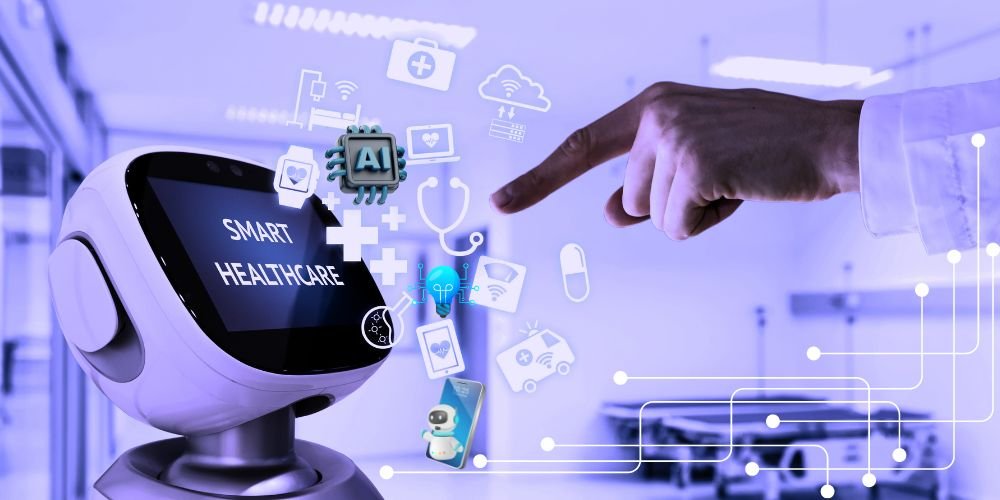In the rapidly advancing healthcare landscape, Artificial Intelligence (AI) has emerged as a transformative force, revolutionizing how medical professionals diagnose, treat, and manage patient care. From enhancing diagnostic accuracy to streamlining administrative processes, AI applications are reshaping the healthcare industry, ushering in a new era of improved precision and personalized medicine.
One of the most impactful applications of AI in healthcare is in medical imaging. AI algorithms, particularly those based on deep learning, have demonstrated remarkable accuracy in analyzing medical images, such as X-rays, CT scans, and MRIs. These algorithms can assist radiologists in detecting anomalies, identifying patterns, and providing more timely and accurate diagnoses. The integration of AI in medical imaging not only expedites the diagnostic process but also improves the overall quality of patient care.
AI-driven predictive analytics is another critical facet of healthcare transformation. Machine learning algorithms analyze vast datasets to identify patterns and predict potential health risks. This capability enables healthcare providers to manage chronic conditions proactively, predict disease outbreaks, and optimize resource allocation. By leveraging predictive analytics, healthcare organizations can move from a reactive model to a preventive and proactive approach, ultimately improving patient outcomes and reducing healthcare costs.
In personalized medicine, AI plays a pivotal role in tailoring treatment plans to individual patients. AI algorithms can identify specific biomarkers and recommend targeted therapies by analyzing genetic and molecular data. This precision medicine approach enhances treatment efficacy and minimizes side effects, offering patients more personalized and effective healthcare solutions.
Administrative work often consumes a significant portion of healthcare professionals’ time and can be streamlined through the use of AI. Natural Language Processing (NLP) algorithms facilitate voice recognition, allowing clinicians to dictate and transcribe patient notes with ease. AI-powered chatbots assist in answering patient queries, scheduling appointments, and providing general information, freeing up administrative staff to focus on more complex tasks.
Despite the immense potential of AI in healthcare, challenges persist. Data privacy, security, and the ethical use of patient information must be carefully addressed. Additionally, healthcare data must be standardized and interoperable to ensure seamless integration of AI applications across different healthcare systems.
As AI continues to evolve, its role in healthcare is expected to expand into drug discovery, virtual health assistants, and remote patient monitoring. AI-driven virtual health assistants can offer personalized health advice, monitor chronic conditions, and support mental health. The integration of AI in drug discovery expedites the identification of potential therapeutic compounds, accelerating the development of new treatments.
Artificial Intelligence in Healthcare Market
The Techgolly market research team estimates that the global Artificial Intelligence market in healthcare was valued at least USD 18 billion in 2023 and is projected to reach up to USD 242 billion by 2030. Growth is expected to continue at a compound annual growth rate (CAGR) of 43%-45% from 2023 to 2030.
Conclusion
Artificial Intelligence is reshaping the healthcare landscape, offering unprecedented opportunities to improve patient outcomes, enhance diagnostic accuracy, and optimize healthcare delivery. As the synergy between AI and healthcare deepens, the industry is poised to achieve new milestones in precision medicine, predictive analytics, and patient-centric care, ultimately transforming the patient experience and redefining the future of healthcare.





